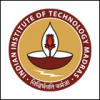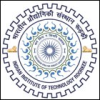How to become a Materials Engineer
Overview, Courses, Exam, Colleges, Pathways, Salary

Overview
Who is Materials Engineer ?
Materials engineering is an interdisciplinary discipline of engineering that is concerned with the development, processing, and testing of materials that are then utilised to generate a broad variety of products. Now, these specialised engineers study the properties and structure of materials such as ceramics, metals, and nanomaterials, which are extremely small particles, to develop new materials, assisting in the selection of appropriate materials for specific products, and developing new methods for utilising existing materials. Materials engineering allows for expertise in certain kinds of materials, including ceramic engineering, plastic engineering, semiconductor processing engineering, metallurgical engineering, and composites engineering.
Jobs in materials engineering are available in a variety of fields, including aerospace product and component manufacture, semiconductor and other electronic component manufacturing, architectural, engineering, and associated services, and scientific research and development. The majority of materials engineers work in the industry. However, a materials engineer's skill is particularly valuable in biomedical engineering, where novel materials are developed and investigated for industrial processes, medicine, and medical implants.
Typical day at work
What does Materials Engineer do?
There are different types of materials engineering jobs typically depending on the area of specialization. Generally, it comprises of the following tasks.
- Analyze the behaviour of materials in a variety of settings and their degradation.
- Conduct basic and applied research at both the molecular and industrial levels
- Ascertain that all processes, systems, products, and equipment types comply with applicable safety regulations.
- When developing the goals of a product or process, consider both technical criteria and economic considerations.
Abilities and Aptitude needed
What are the skills, abilities & aptitude needed to become Materials Engineer?
To flourish in the area of materials engineering, a materials engineer must possess particular skills and inclinations in addition to an appropriate educational background. Material engineers must have an enthusiasm for science and its applications, strong interpersonal skills, the ability to work effectively under pressure, excellent communication skills, a quick, analytic mind, and problem-solving abilities. Jobs in materials engineering need an eye for detail, originality, rigorous adherence to norms, accuracy, and deft application of logical principles, and candidates must demonstrate these characteristics to some level. To do the function of a materials engineer justice, candidates must also possess a commercial understanding of the industry in which they intend to operate.
Salary
Salary for Materials Engineer?
Salary of a Materials Engineer is as follows :
- Minimum Monthly Income (Materials Engineer): Entry-level Materials Engineers in India typically earn a monthly income ranging from approximately INR 25,000 to INR 40,000 as they embark on their careers, assisting in research projects, conducting tests, and contributing to material analysis and selection.
- Maximum Monthly Income (Materials Engineer): Experienced and accomplished Materials Engineers, particularly those who have led successful research and development projects, demonstrated expertise in materials characterization, or have taken up managerial roles, can earn a maximum monthly income of INR 80,000 to INR 1,50,000 or more, depending on their specialization and industry demand.
- Annual Income (Materials Engineer): The annual income of a Materials Engineer varies based on factors such as specialization, years of experience, industry demand, and contributions to innovative projects. Annual earnings may range from INR 3,00,000 to INR 18,00,000 or higher for established professionals who have consistently delivered advancements in materials science and demonstrated leadership in their field.
- Highest Earning Opportunities and Scope: Materials Engineers who specialize in cutting-edge areas such as nanomaterials, biomaterials, composite materials, or advanced manufacturing techniques often command higher earnings due to their expertise in emerging technologies. Engineers who excel in optimizing material properties for specific applications, developing sustainable and environmentally friendly materials, or contributing to breakthrough innovations can unlock enhanced earning potential. The scope for Materials Engineers is promising as industries continue to seek materials that offer improved performance, durability, and efficiency. With the increasing emphasis on sustainability and technological advancements, skilled Materials Engineers play a pivotal role in shaping the future of materials used in various sectors. This role offers significant opportunities for research, experimentation, and contributing to innovations that drive progress and enhance the quality of products and processes.
Pathways
How to become an Materials Engineer?
Entrance Exam
Entrance Exam for Materials Engineer ?
In order to enrol into a Bachelor’s program at an esteemed university, aspirants are expected to clear the JEE main and subsequently, the JEE Advance exam which makes the aspirant eligible to apply anywhere in India. It is a very difficult and challenging exam to crack that requires hard work as well as rigorous and consistent preparation. Some states have their own entrance exams that are admissible in their respective universities. Many educational institutes conduct their own entrance tests.
Courses
Which course I can pursue?
Best Colleges
Which are the best colleges to attend to become an Materials Engineer?
Industries
Which Industries are open for Materials Engineer?
On receiving the best relevant educational background, and preferably with the experience gained during an internship, aspirants may apply for the following material engineering jobs:
- combustion engineers
- petroleum engineers
- smelting engineers
- water treatment engineers
- production engineers
- biomaterial engineers
- process control engineers and
- pharmaceutical engineers.
internship
Are there internships available for Materials Engineer?
In any given field, along with theoretical knowledge, it is always an added advantage to get an on-ground experience that enhances the aspirant’s understanding of the domain. It is highly encouraged to take up an internship and gain exposure to the latest tools, methodologies, practices and technology and become fluent with industrial standards. Aspirants may seek internships while studying and even after graduation. Many education boards have made it mandatory to take up at least one internship during the course of their degree program in order to better prepare the candidates for competence in the real world.
Career outlook
What does the future look like for Materials Engineer?
A career in materials engineering enables candidates to work in a range of sectors since the necessity for processing materials and making new products is not confined to a few. A materials engineering salary may be considered sufficient, with room for advancement based on one's talents and performance. By satisfying the materials engineering standards, whether, in terms of interpersonal skills, technical abilities, or educational background, applicants have access to a plethora of professional prospects that may help advance their careers.







